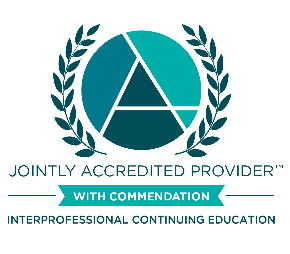A Resource for Healthcare and Social Services Professionals
Estimated time to complete: 1 hour
This training will review the relationship between brain injuries and substance use disorders, as well as population-specific treatment interventions. CEs: CME (1.00); Nursing (1.00)
This training will review the relationship between brain injuries and substance use disorders, as well as population-specific treatment interventions.
This training satisfies 1.00 hours of the required 8 hours of training for DEA-registered practitioners. The Medication Access and Training Expansion (MATE) Act was included in the Consolidated Appropriations Act, 2023. The MATE Act requires increased training for Drug Enforcement Administration (DEA)-registered physicians and practitioners—specifically, a one-time eight-hour training requirement on treating and managing patients with opioid or other substance use disorders.
Medical professionals with prescriptive authority, nurses and support staff who support them looking to increase provision of care for patients with substance use disorder.
Other Faculty
Daniel P. Alford, MD, MPH, FACP, FASAM, CME Course Director, has no relevant financial relationships to disclose.
Colleen LaBelle, MSN, RN-BC, CARN Nursing Course Director, has no relevant financial relationships to disclose.
Members of the planning committee have no relevant financial relationships to disclose:
Ilana Hardesty, MA, Planning Committee
Victoria Rust, BS, Planning Committee
Charmaine Lastimoso, MSN, NP-C, MPH, CARN-AP
Charmaine Lastimoso is an assistant professor of medicine at the Boston University Chobanian & Avedisian School of Medicine and a recent graduate of an adult nurse practitioner fellowship with the Harvard Medical School Interprofessional Palliative Care Fellowship Program. She spends most of her clinical time at the Dana Farber Cancer Institute on the inpatient palliative care consult team and the outpatient clinic, with additional rotations in community-based palliative care. She also provides transitional, low-barrier substance use disorder care at Faster Paths to Treatment, Boston Medical Center's SUD urgent care center. Charmaine was previously a Clinical Nurse Educator for BMC’s Grayken Center for Training and Technical Assistance, where she contributed to peer-reviewed publications, evidence-based clinical guidelines, development and delivery of continuing education programs, and other resources for providers supporting patients with substance use disorder. She has also worked at the Boston Health Care for the Homeless Program as a respite and primary care provider and has conducted research on the healthcare needs of historically underserved populations.
Charmaine has no relevant financial relationships to disclose.
Following this training, participants will have the knowledge to:
Boston Medical Center Grayken Center for Addiction Training and Technical Assistance, Massachusetts Department of Public Health, Bureau of Substance Addiction Services (DPH/BSAS)
Funding for out of state attendees is provided by the Opioid Response Network (ORN).
Funding for this initiative was made possible (in part) by grant no. 1H79TI081968 & 1H79TI085588-02 from SAMHSA. The views expressed in written conference materials or publications and by speakers and moderators do not necessarily reflect the official policies of the Department of Health and Human Services; nor does mention of trade names, commercial practices, or organizations imply endorsement by the U.S. Government.
 In support of improving patient care, Boston University Chobanian & Avedisian School of Medicine is jointly accredited by the Accreditation Council for Continuing Medical Education (ACCME), the Accreditation Council for Pharmacy Education (ACPE), and the American Nurses Credentialing Center (ANCC), to provide continuing education for the healthcare team.
In support of improving patient care, Boston University Chobanian & Avedisian School of Medicine is jointly accredited by the Accreditation Council for Continuing Medical Education (ACCME), the Accreditation Council for Pharmacy Education (ACPE), and the American Nurses Credentialing Center (ANCC), to provide continuing education for the healthcare team.
Continuing Medical Education (CME): Boston University Chobanian & Avedisian School of Medicine designates this enduring material for a maximum of 1.00 AMA PRA Category 1 Credit(s)™. Physicians should claim only the credit commensurate with the extent of their participation in the activity.
Nursing Contact Hours: 1.00 number of contact hours of which 0.00 are eligible for pharmacology credit.
This program expires on 07/14/2025.
Requirements for Credit: To earn credit, one must complete the pre-test, video, and pass the post-test evaluation with a minimum score of 70%. The evaluation closes two weeks after watching the video.
Speaker/Planner Disclosures & Disclaimer
Boston University Chobanian & Avedisian School of Medicine asks all individuals involved in the development and presentation of Accredited Continuing Education activities to disclose all financial relationships with ineligible companies. This information is disclosed to all activity participants prior to the start of the educational activity. Boston University Chobanian & Avedisian School of Medicine has procedures to mitigate all relevant financial relationships with ineligible companies. In addition, faculty members are asked to disclose when any unapproved use of pharmaceuticals and devices is being discussed.
In accordance with the Standards for Integrity and Independence in Accredited Continuing Education, all relevant financial relationships that faculty, planners, authors, and anyone who may be in control of content have with ineligible companies have been mitigated.
Faculty members do not plan on discussing off-label/investigational uses of a commercial product.
THIS CONTINUING EDUCATION PROGRAM IS INTENDED SOLELY FOR EDUCATIONAL PURPOSES FOR QUALIFIED HEALTH CARE PROFESSIONALS. IN NO EVENT SHALL BOSTON UNIVERSITY BE LIABLE FOR ANY DECISION MADE OR ACTION TAKEN IN RELIANCE ON THE INFORMATION CONTAINED IN THE PROGRAM. IN NO EVENT SHOULD THE INFORMATION CONTAINED IN THE PROGRAM BE USED AS A SUBSTITUTE FOR PROFESSIONAL CARE. NO PHYSICIAN-PATIENT RELATIONSHIP IS BEING ESTABLISHED. IN NO EVENT SHOULD INFORMATION IN THE MATERIALS REGARDING LAWS, REGULATIONS, OR LEGAL LIABILITY BE CONSIDERED LEGAL ADVICE OR USED AS A SUBSTITUTE FOR CONSULTING WITH AN ATTORNEY.